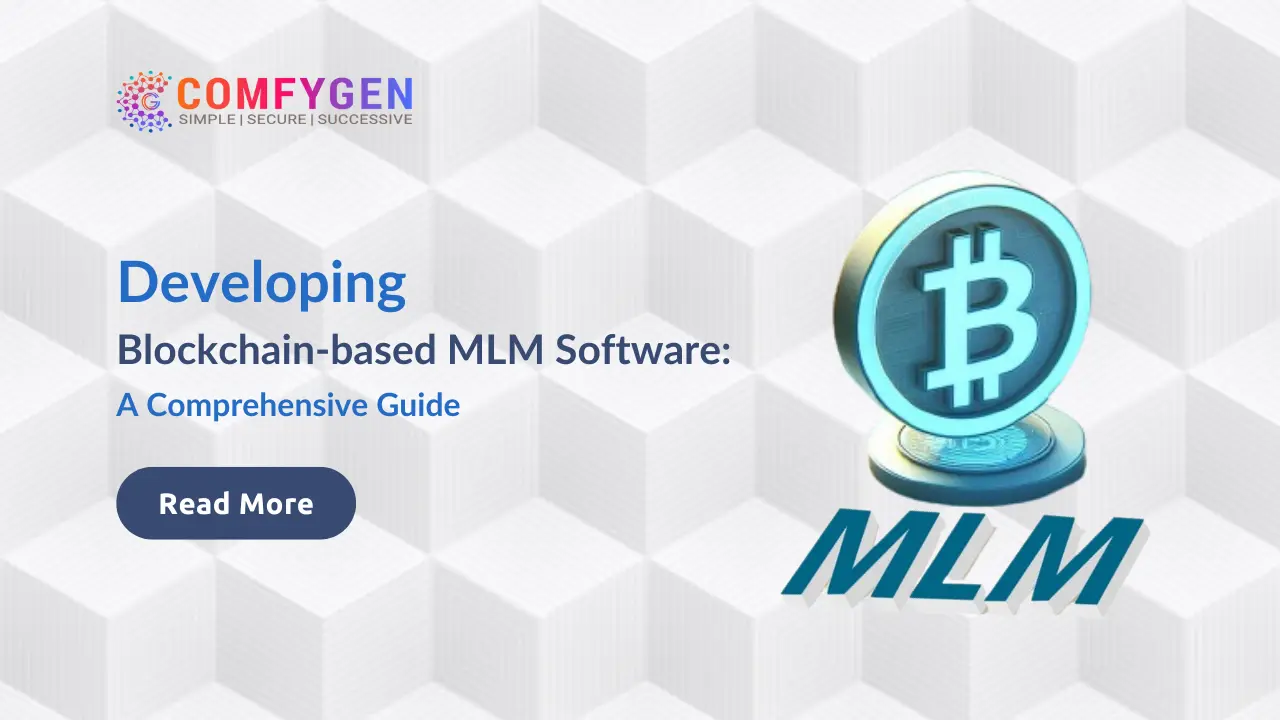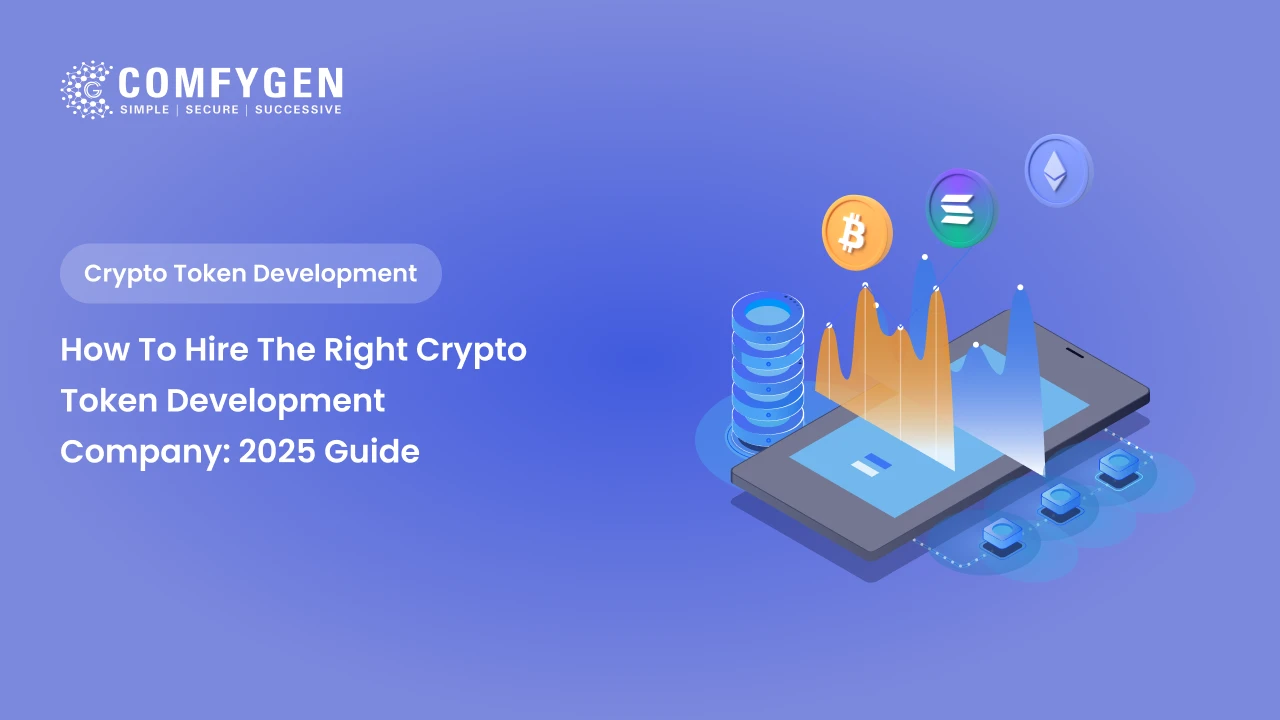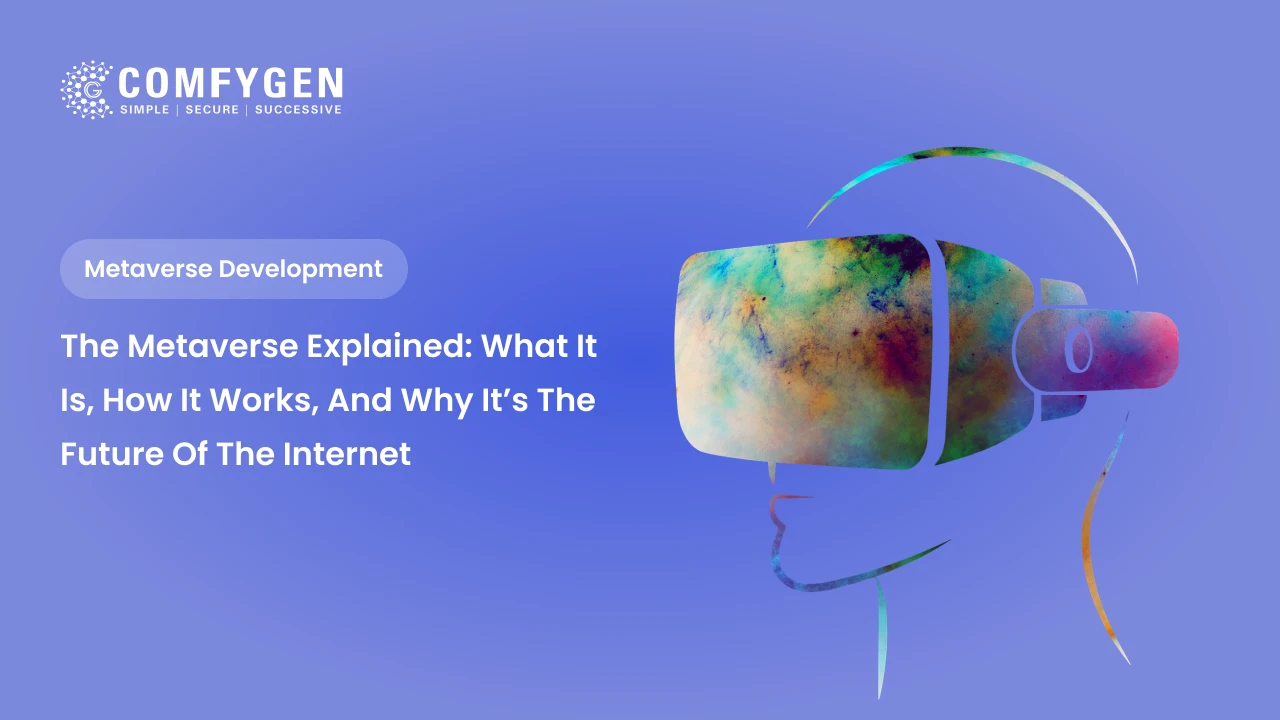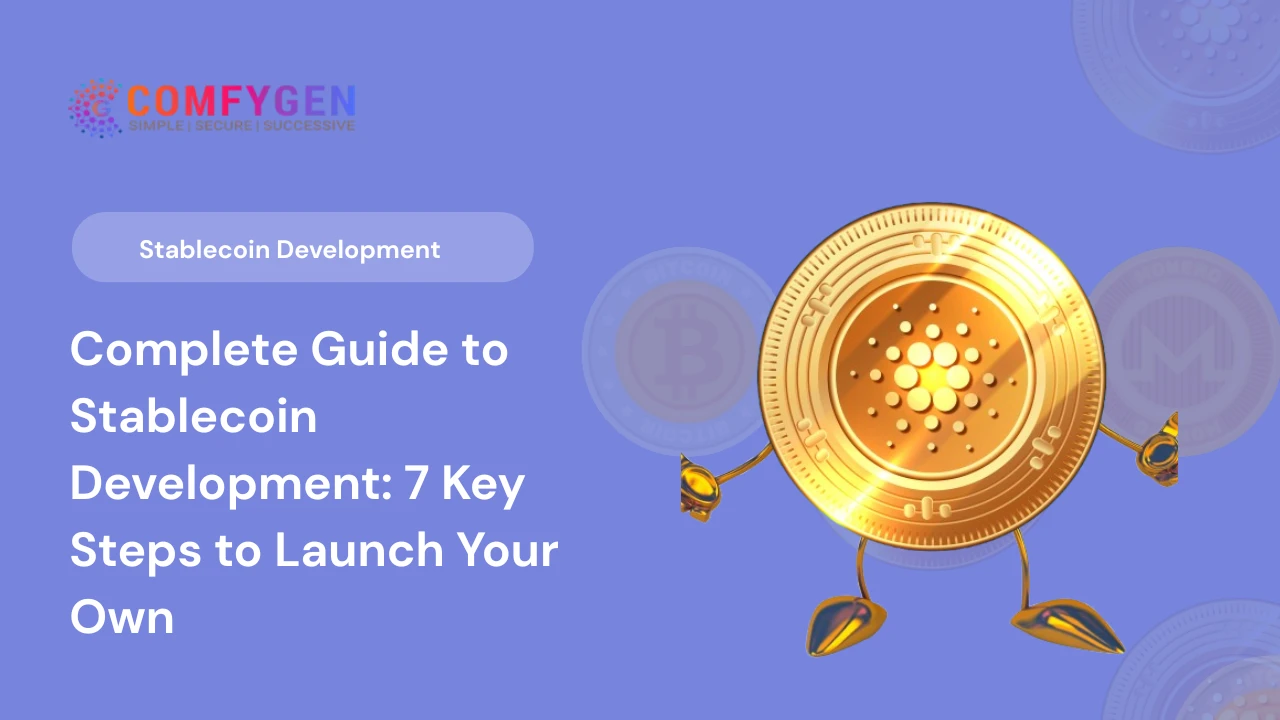Developing Blockchain-Based MLM Software: A Comprehensive Guide

Multi-Level Marketing (MLM) has been a key metric of direct selling, leveraging networks of distributors to reach consumers directly. In recent years, the MLM industry has witnessed significant growth, with global sales reaching over $180 billion annually. This growth underscores the industry’s resilience and its adaptability to changing market dynamics.
However, traditional MLM models face challenges such as transparency issues and centralized control. Blockchain technology offers a promising solution by introducing transparency, security, and decentralization into MLM operations. Blockchain’s immutable ledger and smart contract capabilities enable trustless transactions and automated rewards distribution, revolutionizing how MLM businesses operate.
This comprehensive guide explores the development of blockchain-based MLM software, detailing the integration of smart contracts, the importance of cryptographic security, and the strategic planning required for successful implementation. By harnessing blockchain’s potential, MLM businesses can enhance transparency, build trust with stakeholders, and navigate regulatory challenges effectively in a rapidly evolving market landscape.
Understanding The Blockchain Technology
Blockchain technology, at its core, is a decentralized and immutable digital ledger that records transactions across a network of computers. Each transaction is stored in a “block” that is linked to previous blocks, forming a chain. This chain of blocks creates a secure and transparent record of transactions, visible to all network participants.
Key features of blockchain include decentralization, which removes the need for a central authority by distributing control across the network. This decentralization enhances security and reduces the risk of fraud or manipulation. Immutability ensures that once data is recorded on the blockchain, it cannot be altered or deleted, ensuring data integrity and trustworthiness.
Blockchain operates through consensus mechanisms, where network participants agree on the validity of transactions before they are recorded. This consensus ensures the integrity of the blockchain and prevents double-spending of digital assets.
In the context of developing blockchain-based MLM software, understanding these foundational aspects of blockchain technology is crucial. It enables MLM businesses to leverage transparency, security, and decentralization to create trustworthy and efficient systems for their distributors and customers alike.
What Is Crypto MLM Software?
Crypto MLM software integrates blockchain technology into traditional MLM models, enhancing transparency and security while decentralizing control. It leverages smart contracts to automate processes such as commission payouts, rank advancements, and product distributions, reducing administrative overhead and ensuring fair and timely transactions.
Unlike traditional MLM systems, Crypto MLM software uses cryptocurrency for transactions, offering benefits like low transaction fees, faster cross-border payments, and increased financial privacy. Participants can track transactions on the blockchain, ensuring transparency and trust in the network.
For MLM businesses, Crypto MLM software provides a competitive edge by fostering trust among distributors and customers through transparent, immutable transaction records. It also opens up global market opportunities by facilitating seamless international transactions without intermediaries.
In essence, Crypto MLM software represents the evolution of MLM, combining the proven benefits of direct selling with the innovative potential of blockchain technology to create a more efficient and secure business model for the digital age.
The Role Of Blockchain MLM Software
Blockchain technology plays a pivotal role in revolutionizing MLM software by enhancing transparency, security, decentralization, and automating operations through smart contracts.
- Transparency and Security
Blockchain ensures transparency by recording all transactions on a decentralized ledger visible to all participants. Each transaction is cryptographically secured and immutable, preventing tampering or alteration. Distributors and customers can verify transactions in real-time, fostering trust and reducing disputes.
- Decentralization and Trust
Traditional MLM models often rely on centralized authorities for transaction validation and reward distribution, leading to potential issues like fraud or manipulation. Blockchain’s decentralized nature distributes control across the network, removing the need for intermediaries. This decentralization increases trust among participants as transactions are validated by consensus among network nodes.
- Smart Contracts and Automation
Smart contracts are self-executing agreements coded on the blockchain, automating processes like commission payouts, product delivery, and rank advancements based on predefined rules. These contracts eliminate manual intervention, reducing administrative costs and ensuring fairness in operations. Participants benefit from transparent, automated transactions executed in a secure and trustless environment.
By leveraging blockchain technology, MLM software not only improves operational efficiency but also enhances participant trust, security, and overall market credibility in an increasingly digital and interconnected world.
Also Read: Best Cryptocurrency MLM Software Development Company in India
Benefits Of Blockchain-Based MLM Software
Blockchain-based Crypto MLM software development offers numerous advantages over traditional MLM models, leveraging blockchain technology to enhance security, transparency, decentralization, and automate processes.
- Enhanced Security
Blockchain’s decentralized ledger and cryptographic security protocols ensure that transactions are secure and tamper-proof. Each transaction is recorded on the blockchain, making it transparent and resistant to fraud or unauthorized alterations.
- Improved Transparency
Transactions on the blockchain are visible to all participants, promoting transparency and trust within the network. Distributors and customers can track transactions in real-time, ensuring accountability and reducing disputes.
- Decentralization
Unlike centralized MLM systems, blockchain-based MLM software operates on a decentralized network. This decentralization removes single points of failure and reduces the risk of manipulation, enhancing trust among participants.
- Secure Transactions
Cryptocurrencies used in Crypto MLM software development services enable secure, borderless transactions with minimal fees and faster processing times compared to traditional banking systems. Participants can conduct transactions globally without intermediaries, improving efficiency and accessibility.
- Lower Operational Costs
Automation through smart contracts reduces the need for manual oversight and administrative tasks, cutting down operational costs. Smart contracts execute predefined rules automatically, streamlining commission payouts, product distribution, and other processes.
- Multinational Trade
Blockchain facilitates seamless international transactions, overcoming barriers like currency exchange rates and transaction fees. Participants can engage in cross-border trade with ease, expanding market reach and opportunities for growth.
- Automation of Processes
Smart contracts automate routine tasks such as commission calculations, reward distributions, and compliance checks based on predefined conditions. This automation reduces errors, ensures fairness, and enhances operational efficiency.
In essence, Blockchain-based MLM software not only modernizes MLM operations but also offers a more secure, transparent, and efficient framework for participants and businesses alike, paving the way for future advancements in the MLM industry.
Want to See a Demo of a Crypto MLM Software
Key Features Of Crypto MLM Software
Crypto MLM software development combines the traditional multi-level marketing structure with innovative blockchain technology, offering several key features that enhance efficiency, transparency, and participant engagement.
- Multi-Level Marketing Structure
Crypto MLM software maintains the hierarchical structure of traditional MLM models, where distributors earn commissions not only from their direct sales but also from the sales of their recruits and their recruits’ recruits. This structure encourages network growth and incentivizes team building.
- Cryptocurrency Integration
Integration of cryptocurrencies such as Bitcoin, Ethereum, or custom tokens into Crypto MLM software facilitates seamless and secure transactions. Cryptocurrencies enable fast, low-cost transfers across borders, reducing transaction fees and eliminating the need for intermediaries.
- Real-time Analytics and Reporting
Advanced analytics tools embedded in Cryptocurrency MLM software provide real-time insights into sales performance, distributor activities, and market trends. These analytics empower MLM businesses to make data-driven decisions, optimize strategies, and identify growth opportunities promptly.
- Smart Contract Functionality
Smart contracts are programmable agreements deployed on the blockchain, automating processes like commission payouts, rank advancements, and product deliveries based on predefined conditions. Smart contracts enhance transparency, reduce administrative overhead, and ensure fair and timely transactions.
By leveraging these key features, Cryptocurrency MLM software not only modernizes traditional MLM practices but also introduces greater security, transparency, and efficiency into network marketing operations. Participants benefit from streamlined processes, secure transactions, and actionable insights, driving sustainable growth and scalability in the digital economy.
Also Read: How Much Does it Cost to Create Crypto MLM Software with Smart Contract?
Steps To Develop Blockchain-Based MLM Software
Developing blockchain-based MLM software involves several key steps to ensure successful implementation and operation:
- Requirement Analysis
Begin by conducting a thorough analysis of business requirements, user needs, and regulatory considerations. Define the goals, functionalities, and scope of the MLM software to align with business objectives and user expectations.
- Choosing the Right Blockchain Platform
Select a suitable blockchain platform based on factors like scalability, transaction speed, security features, and developer community support. Popular platforms include Ethereum, Binance Smart Chain, and others tailored to the specific needs of MLM operations.
- Designing Smart Contracts
Develop smart contracts that automate MLM processes such as commission calculations, reward distributions, and rank advancements. Define the logic and rules for contract execution to ensure transparency, security, and efficiency in transactions.
- Developing the MLM Structure
Design the MLM structure, including hierarchical levels, compensation plans, and incentive mechanisms. Integrate cryptocurrency wallets for seamless transactions and implement user interfaces (UI) for distributors and administrators to interact with the platform.
- Testing
Conduct comprehensive testing to validate the functionality, security, and performance of the blockchain-based MLM software. Test smart contracts for reliability and correctness, simulate real-world scenarios, and ensure compliance with regulatory requirements.
- Deployment
Once testing is complete, deploy the software on the chosen blockchain platform and conduct beta testing with a select group of users to gather feedback and fine-tune the system. Prepare documentation, user guides, and support materials to assist users during the launch and initial adoption phase.
By following these structured steps, MLM businesses can leverage blockchain technology to enhance transparency, automate processes, and foster trust among distributors and customers, driving sustainable growth and competitive advantage in the market.
Launch Your Blockchain Based Multi-level Marketing Software
Challenges In Developing Crypto MLM Software
Developing Crypto MLM (Multi-Level Marketing) software presents several significant challenges:
- Regulatory Compliance
Adhering to diverse global regulations regarding cryptocurrencies and MLM operations is crucial. Different countries have varying laws on financial transactions, consumer protection, and MLM schemes, making compliance a complex issue.
- Security Concerns
Cryptocurrencies are frequent targets for hacking due to their digital nature and potential for financial gain. Ensuring robust security measures, including encryption, secure wallets, and protection against cyber threats, is paramount.
- User Adoption and Trust
Building trust among users is essential, especially with the prevalence of scams in the crypto space. Demonstrating transparency, reliability, and a user-friendly interface can help in gaining and retaining user confidence.
- Technical Complexity
Integrating MLM functionalities with blockchain technology involves dealing with technical intricacies such as smart contracts, decentralized applications (DApps), and blockchain scalability issues. Development teams must possess expertise in both MLM systems and blockchain technology to navigate these complexities effectively.
Addressing these challenges requires a comprehensive approach that balances innovation with regulatory compliance and security, while also prioritizing user experience and technical proficiency.
Also Read: How to Choose the Right MLM Software Development Company for Your Business
Future Trends In Blockchain-Based MLM Software Development
Future trends in blockchain-based MLM (Multi-Level Marketing) software development company in the USA are shaping up to include:
- Blockchain Integration
This trend involves incorporating blockchain technology into MLM software to enhance transparency, traceability, and security. By utilizing a distributed ledger, transactions become immutable and tamper-resistant, reducing fraud and increasing trust among network participants.
- Decentralized Applications (DApps)
DApps enable MLM platforms to operate without central authorities, leveraging blockchain’s decentralized nature. This fosters autonomous transaction processing, governance, and user interaction, promoting fairness and reducing dependency on intermediaries.
- Tokenization and Reward Mechanisms
Integrating tokens within MLM structures facilitates incentive mechanisms and loyalty programs. Tokens can represent value, rewards, or voting rights, incentivizing user engagement and fostering a vibrant ecosystem within the MLM network.
- Smart Contract Development
Smart contract development automate MLM operations by executing predefined terms and conditions upon fulfillment criteria. They ensure transparent, self-executing agreements without intermediaries, reducing costs and enhancing operational efficiency and trust.
- Regulatory Compliance
Addressing regulatory frameworks is crucial for blockchain-based MLM software services. Compliance measures ensure adherence to local and international laws governing financial transactions, consumer protection, and MLM practices, fostering legitimacy and sustainability in operations.
Develop Smart Contract-Based MLM Software on Ethereum
Types Of Blockchain-Based MLM Software Solutions
- Ethereum MLM Software
Utilizes the Ethereum blockchain for its smart contract functionality, enabling secure and transparent MLM operations. Ethereum’s robust ecosystem supports decentralized applications (DApps) and ERC-20 tokens, facilitating tokenization, reward mechanisms, and automated smart contract execution.
- TRON MLM Software
Built on the TRON blockchain, known for its high transaction throughput and low fees. TRON’s platform supports DApps and TRC-20 tokens, making it suitable for scalable MLM applications with fast transaction processing and efficient token management.
- Bitcoin MLM Software
Integrates with the Bitcoin blockchain, focusing on leveraging Bitcoin’s secure and decentralized nature. While primarily used for cryptocurrency transactions, Bitcoin MLM software can incorporate smart contracts through layer-2 solutions or sidechains for enhanced functionality.
- Polygon MLM Software
Utilizes the Polygon (formerly Matic) blockchain, known for its scalability and low transaction costs. Polygon blockchain enhances Ethereum-based applications by providing faster transactions and reduced gas fees, making it ideal for decentralized MLM platforms that require efficient transaction processing and token transfers.
- Solana MLM Software
Solana MLM software utilizes the Solana blockchain, known for its high throughput and low transaction costs. Solana’s architecture is designed to support decentralized applications (DApps) and smart contracts, offering scalability and fast transaction speeds. This makes Solana MLM software suitable for high-performance MLM platforms that require rapid transaction processing and efficient token operations.
Want to Develop Tron Based MLM Software?
Why Is It Important To Develop Blockchain-Based MLM Software For Business?
Developing blockchain-based MLM (Multi-Level Marketing) software for business offers several key advantages:
- Transparency: Blockchain technology ensures transparent and immutable transaction records, enhancing trust among network participants and reducing fraud.
- Security: Decentralized storage and cryptographic security mechanisms make blockchain-based MLM software resistant to hacking and tampering, ensuring the integrity of transactions and user data.
- Efficiency: Smart contracts automate processes like commission distribution and incentive payments, reducing administrative overhead and operational costs.
- Global Reach: Blockchain enables seamless cross-border transactions and eliminates currency exchange barriers, expanding market reach for MLM businesses.
- Innovation: Leveraging blockchain fosters innovation in reward mechanisms, tokenization, and decentralized governance, enhancing user engagement and competitive advantage.
- Compliance: Blockchain’s transparency and auditability aid in regulatory compliance, ensuring adherence to legal frameworks and building credibility with regulators and stakeholders.
In essence, blockchain-based MLM software development company are offer empowers businesses with enhanced security, efficiency, and transparency, driving growth and sustainability in the competitive MLM industry.
Read More: Advantages and Disadvantages of Cryptocurrency MLM Software
Conclusion
Cryptocurrency MLM software development company represents a significant opportunity for businesses aiming to enhance transparency, security, and efficiency in their operations. By leveraging blockchain technology, companies can automate processes, ensure trustworthy transactions, and innovate with tokenization and decentralized applications (DApps). This comprehensive guide has explored key aspects such as blockchain integration, smart contract MLM software development, and regulatory compliance, emphasizing the importance of these elements in creating robust MLM platforms.
As businesses navigate the evolving landscape of MLM and blockchain technology, adopting these strategies can foster growth, build trust among users, and position companies at the forefront of innovation in the MLM sector. Embracing blockchain-based solutions not only meets current market demands but also prepares businesses for future advancements in decentralized technologies.
FAQs
How can blockchain-based MLM software benefit me as a network marketer?
Is blockchain-based MLM software secure, and how does it protect my personal and financial data?
What advantages do smart contracts offer in blockchain-based MLM software?
How does blockchain-based MLM software help in expanding my business globally?
What should I consider regarding regulatory compliance when using blockchain-based MLM software?

Mr. Saddam Husen, (CTO)
Mr. Saddam Husen, CTO at Comfygen, is a renowned Blockchain expert and IT consultant with extensive experience in blockchain development, crypto wallets, DeFi, ICOs, and smart contracts. Passionate about digital transformation, he helps businesses harness blockchain technology’s potential, driving innovation and enhancing IT infrastructure for global success.
Based on Interest

Blockchain Consulting Services: Transforming Your Business with Cutting-Edge Blockchain Solutions
Introduction Blockchain technology is revolutionizing industries by providing secure, decentralized, and transparent solutions. As businesses across the world explore their potential,…









